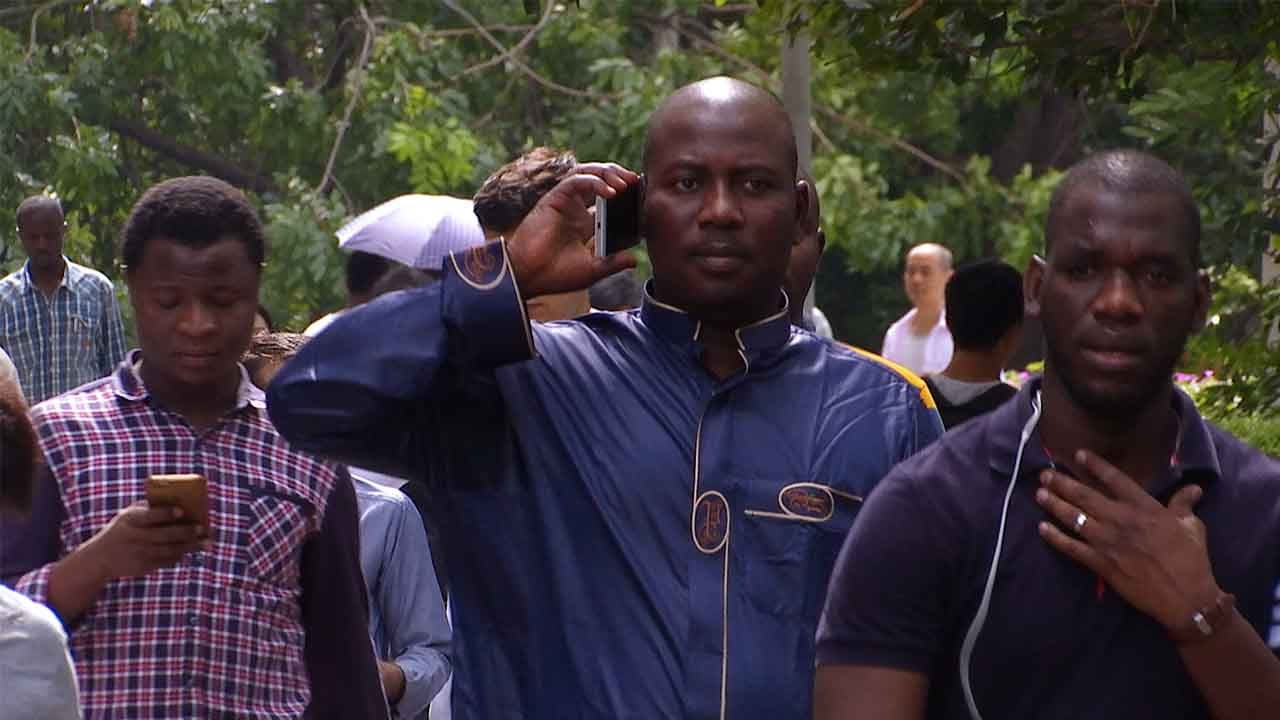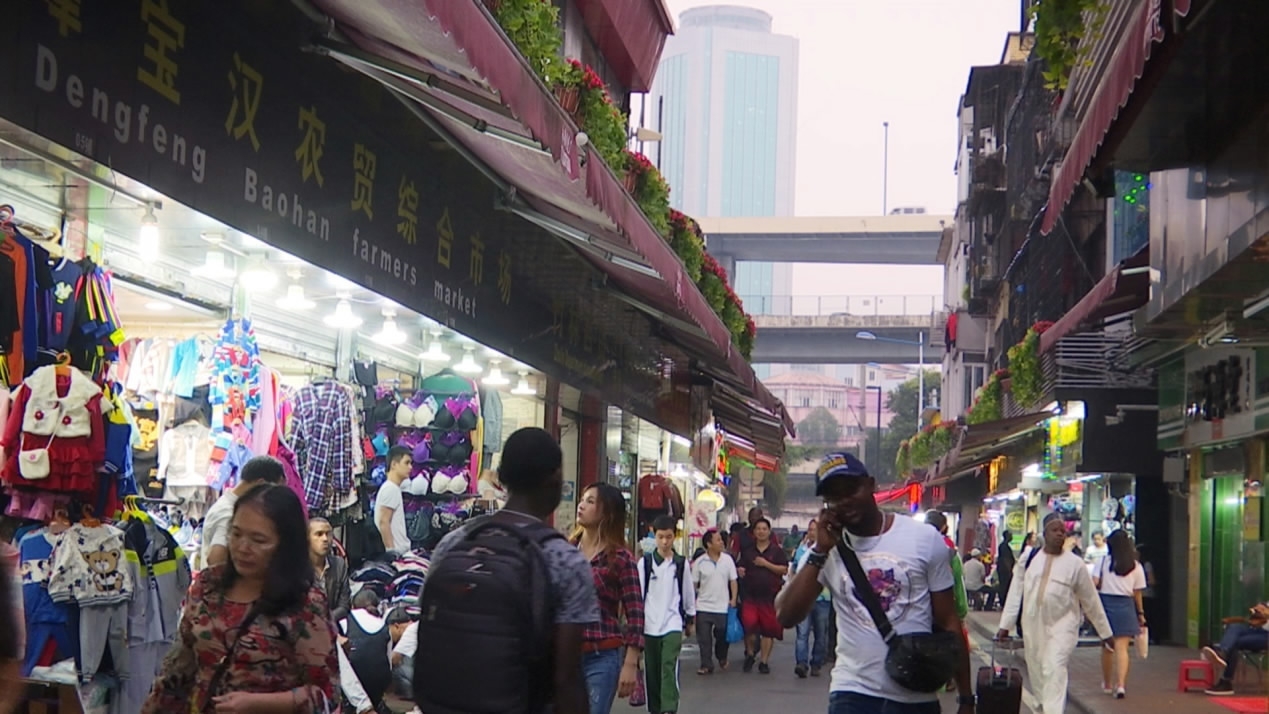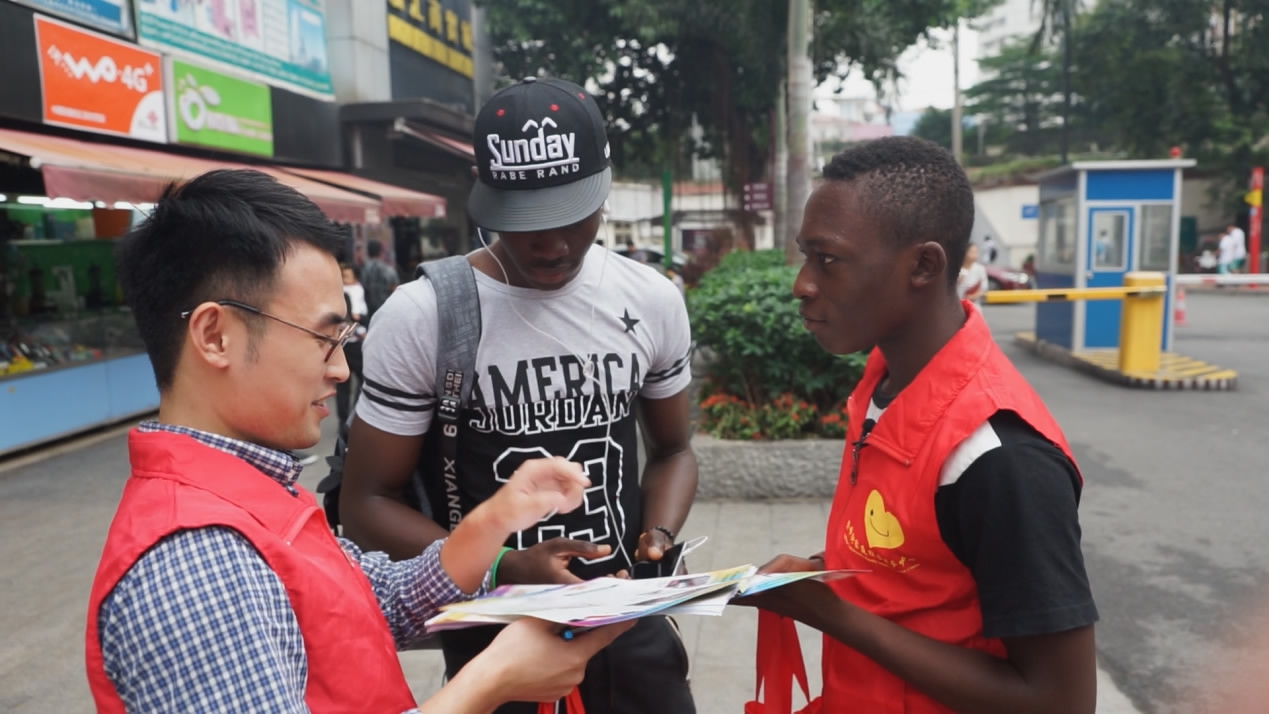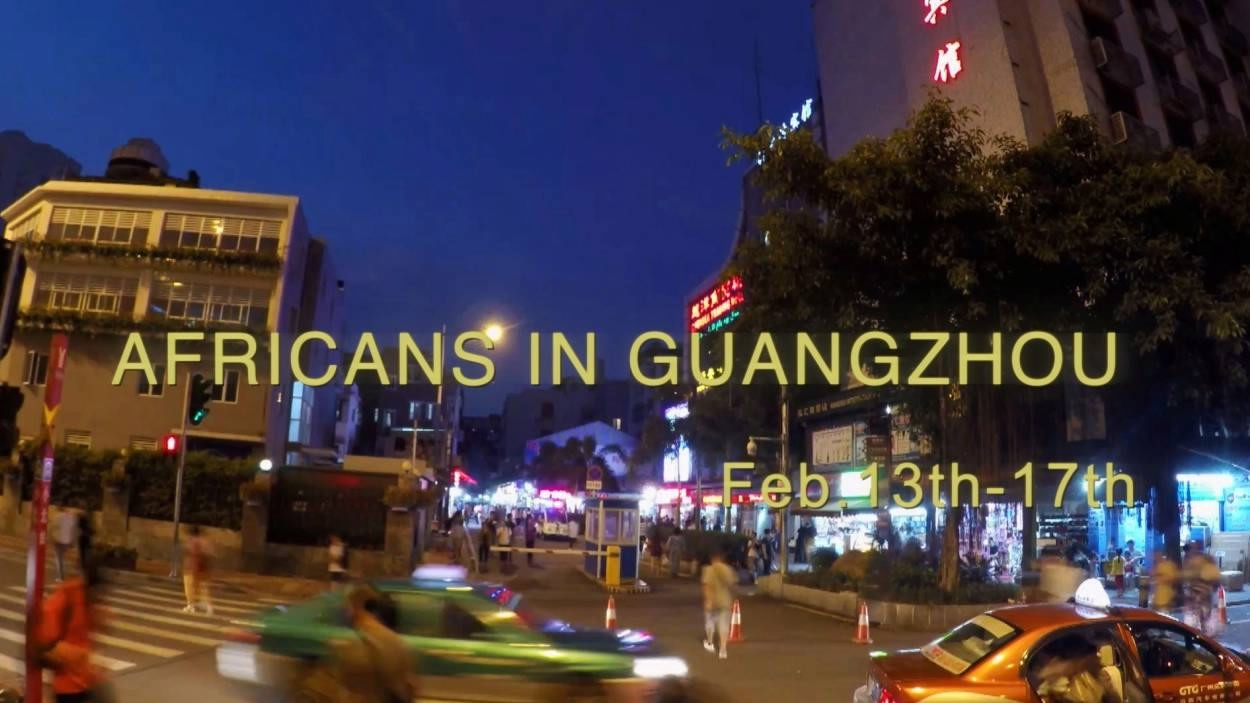Opportunities and obstacles: CGTN sheds light on 'Africans in Guangzhou' in new 5-part report
2017-02-10 18:36 GMT+8
131km to Hong Kong

Editor
Wang Mingyan
By CGTN'S Wu Lei
Since China’s economic boom in the late 1990s, tens of thousands of African traders have migrated to south China’s business hub of Guangzhou. The Chinese metropolis is now one of the largest homes in Asia to African businessmen.
Every day, hundreds of business people from over 20 African countries look for goods in Xiaobei and Dengfeng streets in Guangzhou.
Locals now call this area Little Africa.

"Little Africa" in Guangzhou, south China's Guangdong Province. /Photo: Wu Lei
Pang Bo, the Deputy Director of Guangzhou Entry-Exit Administration said, over 500,000 entries and exits by Africans are registered via all ports in Guangzhou each year.
The number of Africans who have lived in the city for over half a year has risen from some 3,000 in the past to over 6,000 now.
But reports have also emerged about a number of African traders overstaying or holding illegal visas to carry their businesses in Guangzhou.
Ojukwu Emma, President of the Association of Nigerian Community in China, said that a headcount is not an easy task "because so many of my compatriots are using passports from Ghana, Cameroon and so many different countries. And some Cameroonians are also using Nigerian passports. How can one count?"
A growing number of African men are also marrying Chinese women.

David and his wife are an example of mixed marriages in Guangzhou. /Photo: Wu Lei
David and his wife are an example of mixed marriages. They said fitting in and making a life is not easy.
There are also growing challenges for their children.
Wang Haige, a social worker, said that some mixed children do not have access to education as they lack household registration that allows them to enter schools. Many social workers are trying hard to provide services for these mixed marriages, but plenty needs to be done to bridge the gap.
Many Africans want to stay in Guangzhou and work hard to fit in, but they still face many problems owing to language barriers and cultural differences.

Misconceptions about Africans still exist in Guangzhou despite the sizable African community there. /Photo: Wu Lei
Professor Liang Yucheng from Sun Yat-sen University found that a number of Chinese people have negative opinions about Africans, because there are few chances to have deep communication with them. Furthermore, most Chinese know Africans only through limited videos and pictures.
How to manage a growing number of migrants and provide them with better services remains a big question shadowing the mega-cities of China.
Guangzhou has the third largest foreign population of any city in China, after Beijing and Shanghai, and the highest number of African migrants.
As areas across China go through their own internationalization, local officials in Guangzhou hope that their experience could provide inspiration for others and an example to follow.

CGTN Picture
Stay tuned to CGTN for a five-part special report on Africans in Guangzhou from February 13 to 17.
131km
Copyright © 2017
